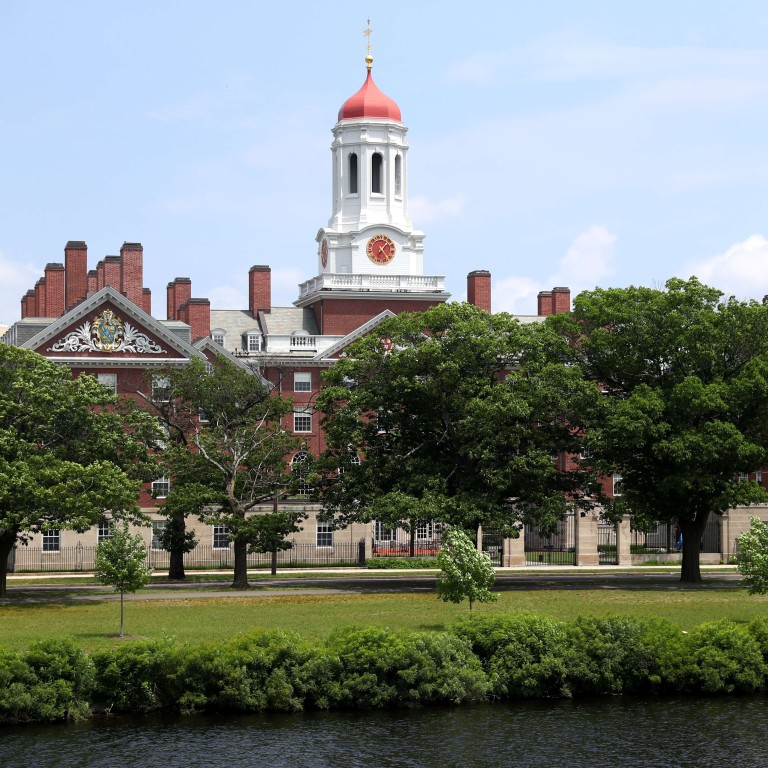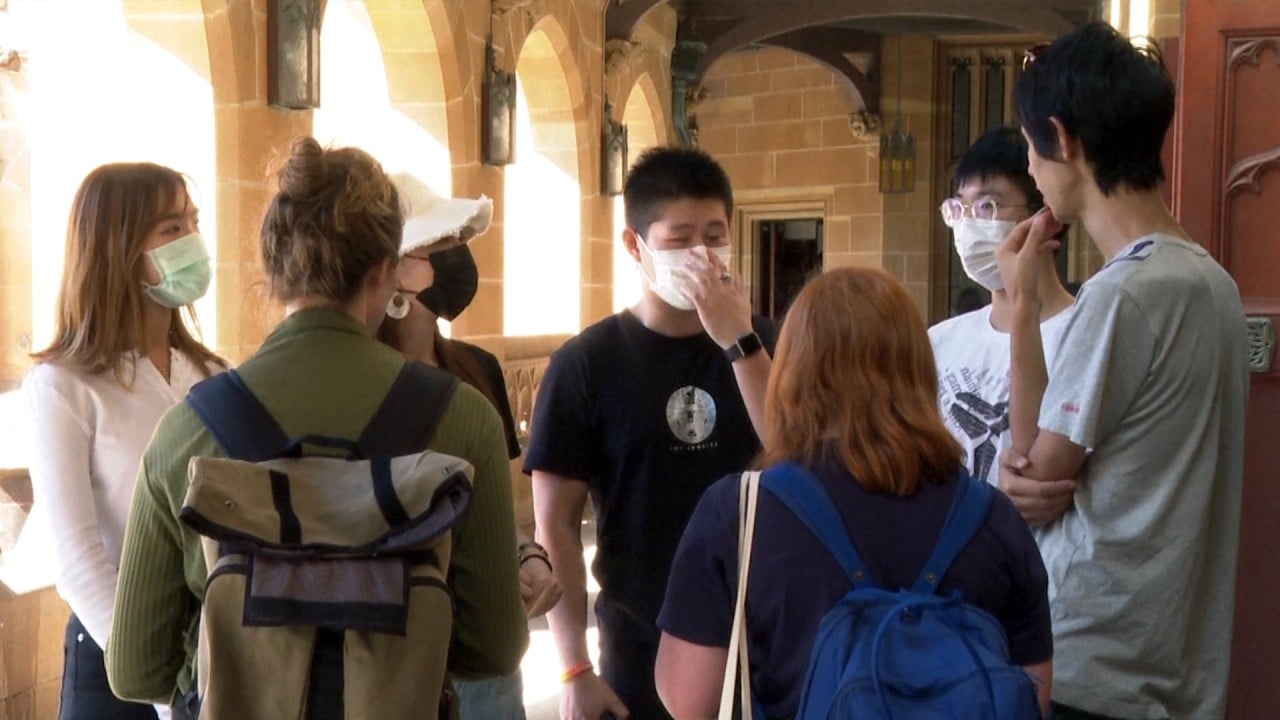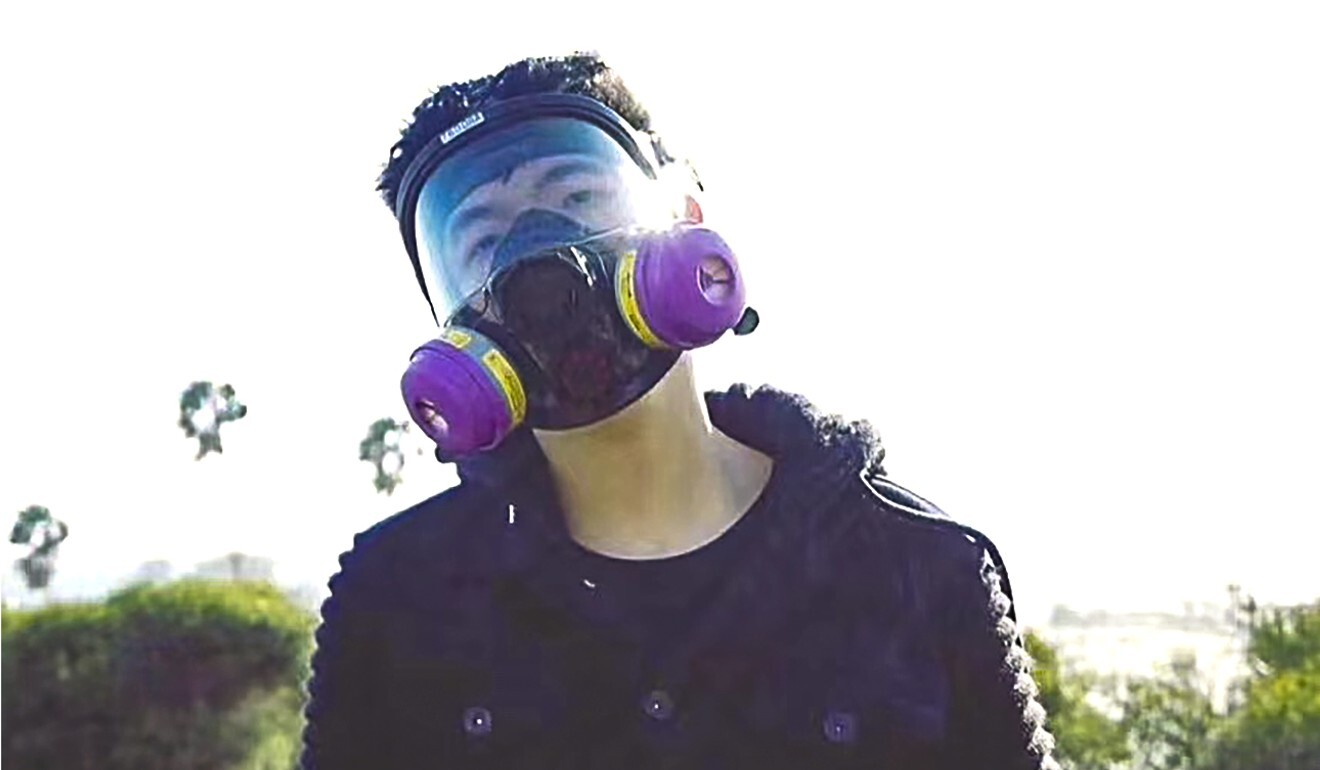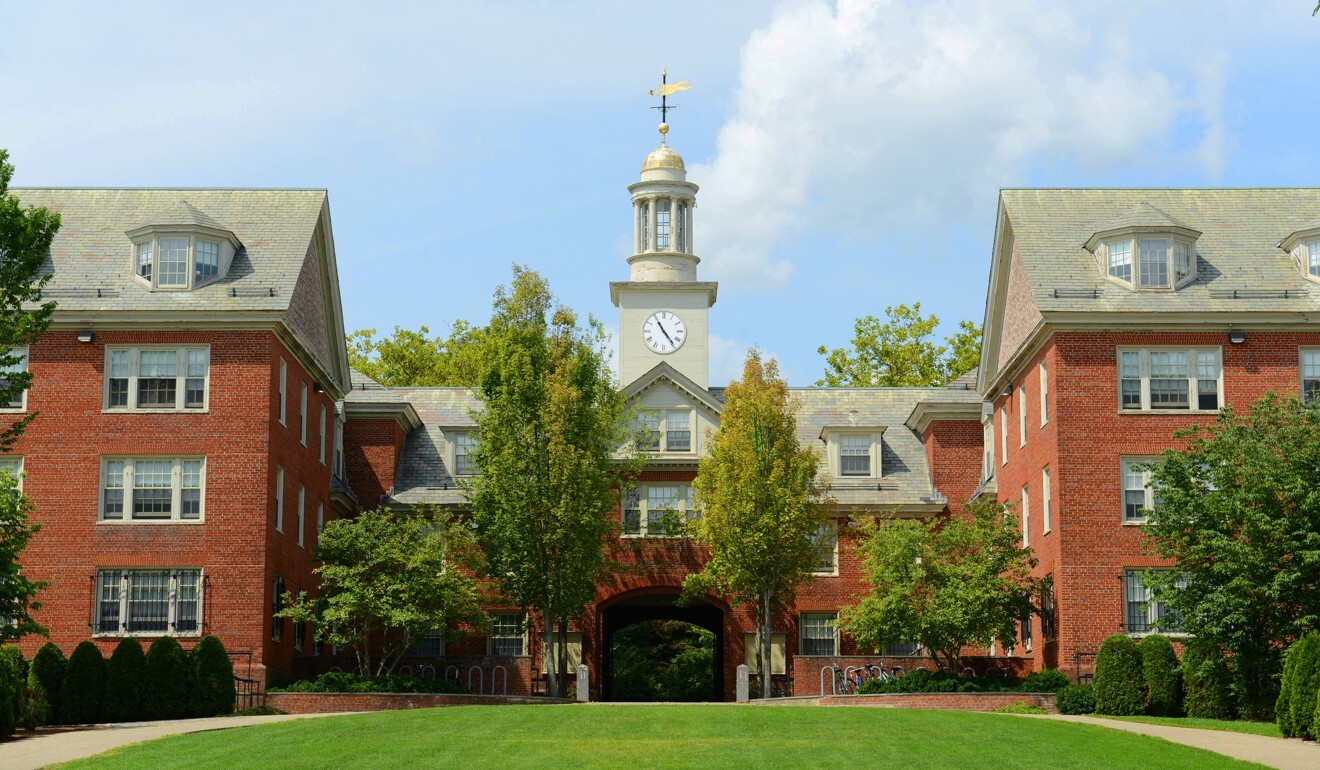
Chinese university students weigh options after US visa rule change amid coronavirus pandemic
- International students must take in-person classes to stay in the US despite Covid-19, says a rule being challenged in a lawsuit by two elite universities
- For many, it’s a tough choice to make – and it will be costly and difficult for those already back home to return to the United States
He was wearing a gas mask and goggles.
“Hello everyone, this is my equipment for next semester,” he wrote.
“When I learned about the [visa] rule, I realised some of my worst predictions had come true,” he said.

02:31
Repatriation of over 1.4 million Chinese students stranded abroad by Covid-19 creates dilemma
Huang, one of 370,000 Chinese students in the United States, is among those whose lives have been turned upside down by the new visa rule announced by US Immigration and Customs Enforcement on Monday.
Otherwise, they either give up their studies there altogether and forgo future job opportunities in the US, or return home and continue taking online classes – but still pay hefty international tuition fees.

“It would be the best outcome but I can’t count on it since this is a long shot,” he said.
International students made up 5.5 per cent of those in higher education – some 1.1 million people – in the US during the 2018-19 academic year, according to the Institute of International Education.
In the spring semester, more than 251,000 international students were attending classes on campus at about 600 higher education institutes in the US surveyed by the IIE in May.
But the rule also affects students who have already returned to their home countries.
Iris Li, who is in her third year studying law and sociology at Emory University in Atlanta, travelled home to Beijing in March after classes went online because of the pandemic. She was lucky – others who left it later have struggled to get one of the limited flights back. “I didn’t suffer that much” trying to get home, she said.
Now Li, and others who have left the US, have a tough choice to make. If she wants to go back, she has to get around the US entry ban on people who have been in China for the 14 days prior to arrival – meaning she would have to travel via a third country, which is costly and difficult at present.

01:25
US colleges face US$15 billion hit as Chinese students stay away amid coronavirus pandemic
Or she could just give up her student visa, Li said, adding that “many plans have been ruined”.
“[It’s the] shock of having to redo all the plans, shock of things being changed in such a brief time, shock of not knowing what else awaits us,” she wrote on Twitter.
Li had planned to do a PhD in the US, and perhaps work there in the future. Now she is thinking about trying another country like Britain.
In Shanghai, 18-year-old Tiffany Chan is staying with her parents after returning from Brown University in Providence, Rhode Island, where she studies psychology and economics.
How strained US-China relations are playing out in American universities
She spent four weeks in quarantine and had to travel through three cities in March before arriving in Shanghai, but now she has to go through it all again to return to the US. She said the new rule meant she had to go back because she did not want to lose her visa, or the opportunity to work there.
“I was debating whether or not to go back to Brown because obviously it is a lot safer here in Shanghai than it is in the US,” Chan said. “But because of the new rule, I’m kind of forced to go back – it’s not ideal, but what can I do?”

The new rule has also got parents worried. Huang said his father, who lives in the southern city of Guangzhou, was losing sleep over it. His mother told him to book a ticket home immediately.
“My dad actually felt very guilty,” Huang said. “My parents feel responsible for me, but … they can’t do anything and I have to look after myself.”
Huang has been studying in the US since high school and has only returned to China twice in the past four years. His father had wanted him to get a degree in the US, but after the new visa rule was announced, “my dad just wants me to come home”.
For Huang, that is not an option – aside from the difficulty of getting on a flight, he said he was worried about a lengthy wait for a visa if he wanted to return to the US.
But while he waits for the court decision, Huang said he felt supported by locals and other international students. Three hours after he saw the ICE decision on Monday, Huang launched an online petition against the new rule, which had garnered more than 11,000 signatures as of Friday.
“That blew my mind. It’s way more than I expected,” he said. “And it means I’m not alone.”


